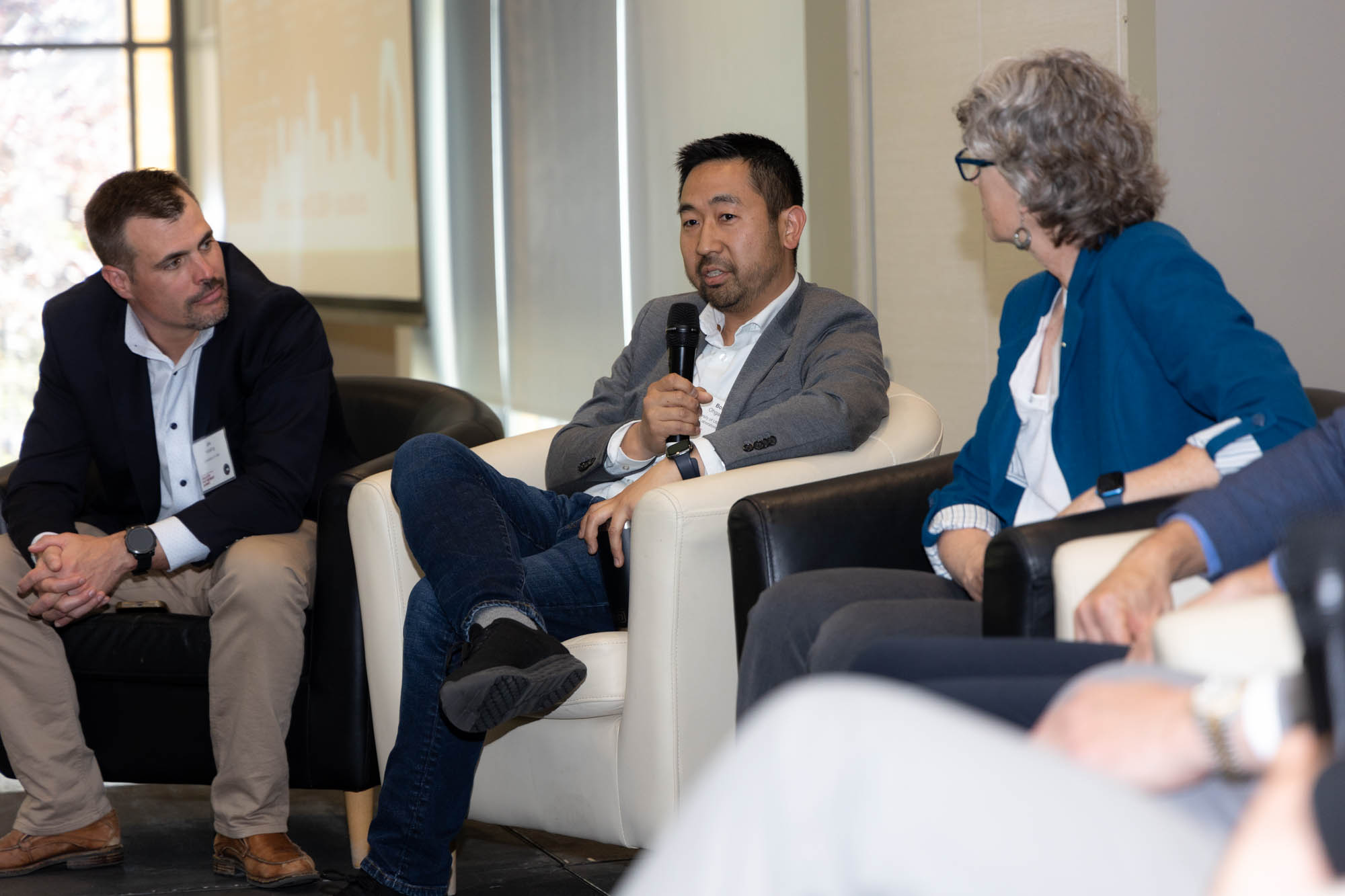
Industry Partnership Summit Summary and Action Items
The One-U Responsible Artificial Intelligence Initiative (One-U RAI) hosted an industry partnership summit on June 10, 2024, to convene experts from industry, government, and academia to identify opportunities for partnership. Over 100 guests attended the event, which included featured speakers and panels on workforce development, infrastructure, health care, and policy.
Welcome
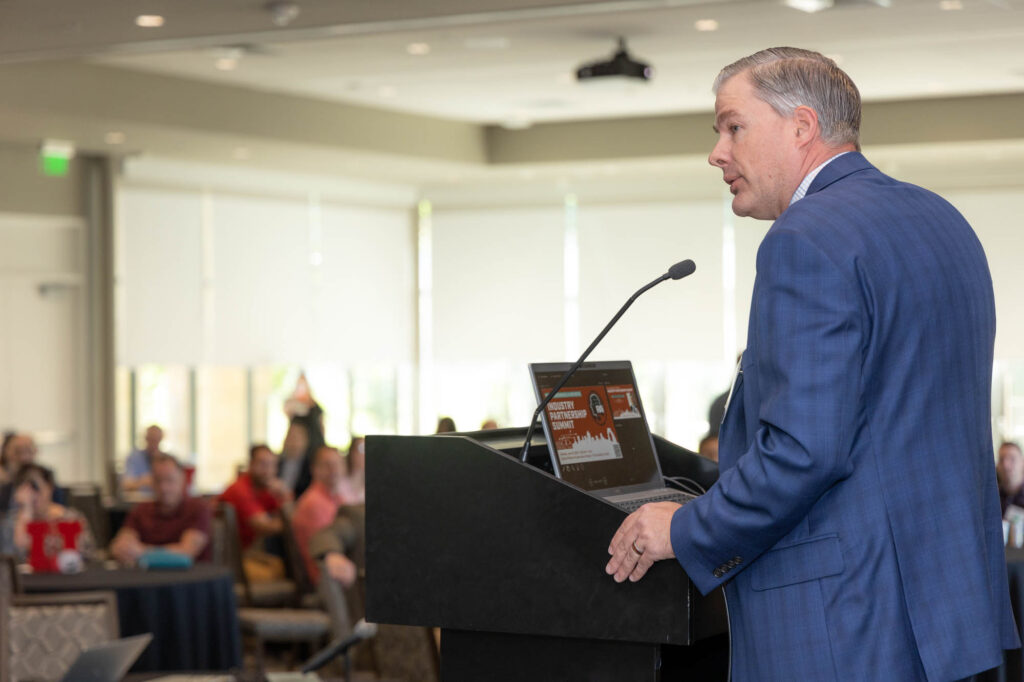
Jakob Jensen, associate vice president for research at the University of Utah, raised critical questions about our role as creators and caregivers of artificial intelligence (AI). He highlighted the ethical dimensions of AI, challenging the view of AI serving solely as a tool and suggesting that it instead represented an emerging life form that requires responsible parenting. With this perspective, Jensen questioned where AI might learn ethics—from humans or the data it processes—and reflected on our current inadequacies as stewards (or parents) while expressing hope for improvement. In closing, he emphasized the need to confront complex ethical dilemmas early and asserted that responsibility must form the foundational principle guiding AI development and deployment.
Vision
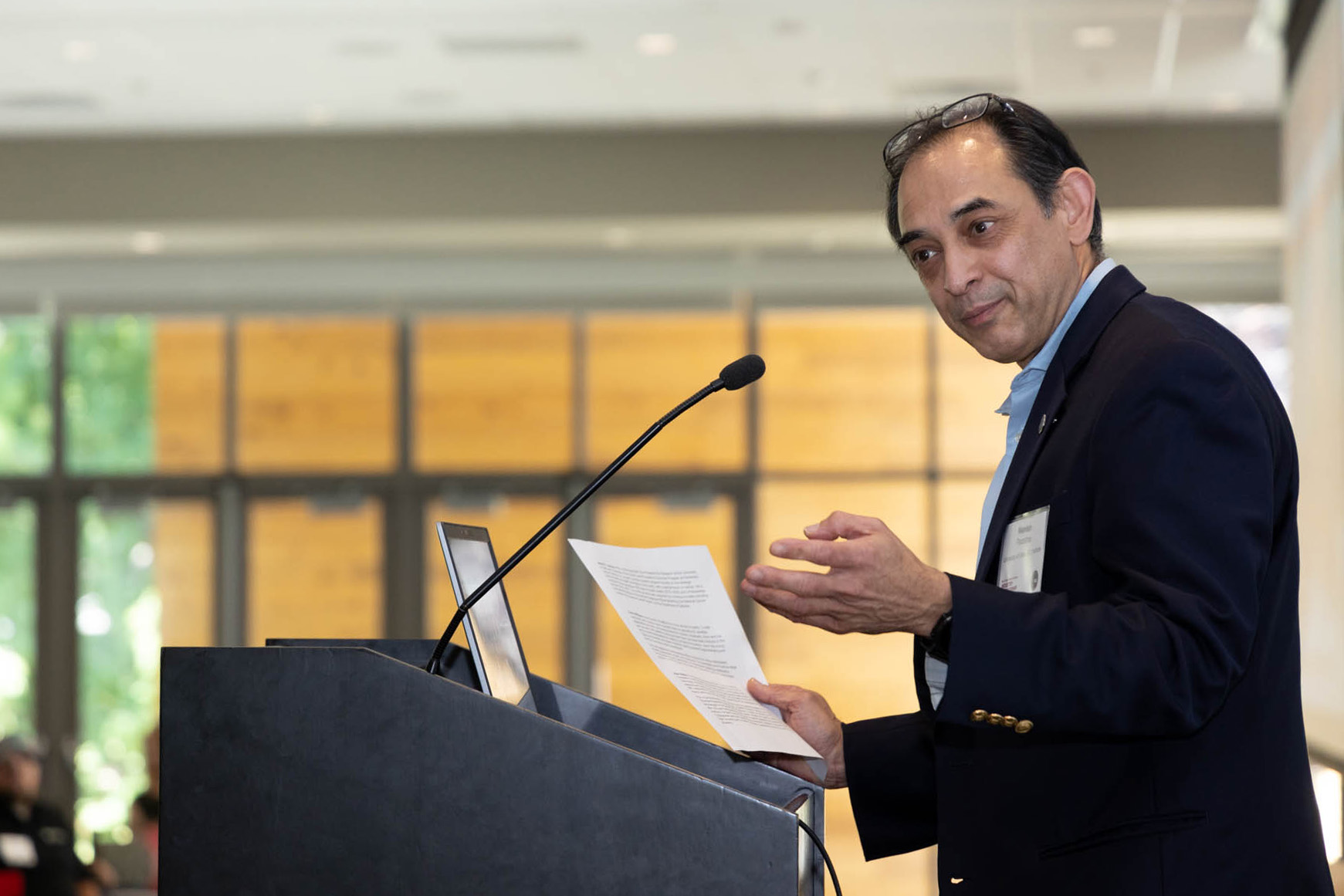
Manish Parashar, director of One-U RAI and the Scientific Computing and Imaging Institute, highlighted that the ambitious, recently launched initiative sets out to understand how we can leverage AI responsibility to address the most challenging and regionally relevant problems. Areas of interest include air quality, water sustainability, mental health, workforce development, and more. Even with this major investment, the University of Utah cannot tackle these problems without partnership. One-U RAI must work closely with partners from industry, government, national labs, and beyond to address these needs. Parashar said he hopes the summit brings key stakeholders together and initiates partnerships that will allow us to effectively address these regional and local challenges with responsible AI.
Summit Goals
- Initiate a broad conversation on responsible AI development in Utah and establish goals and priorities for One-U RAI and the state.
- Identify specific partnership opportunities that are beneficial to all stakeholders.
- Identify parties interested in partnering on responsible AI initiatives at the University of Utah.
- Establish appropriate structures and mechanisms that foster public-private partnerships on responsible AI initiatives.
- Organize follow-up meetings/sessions to track progress on partnerships and identify next steps.
Navigating the AI Supercycle—Balancing Innovation and Responsibility
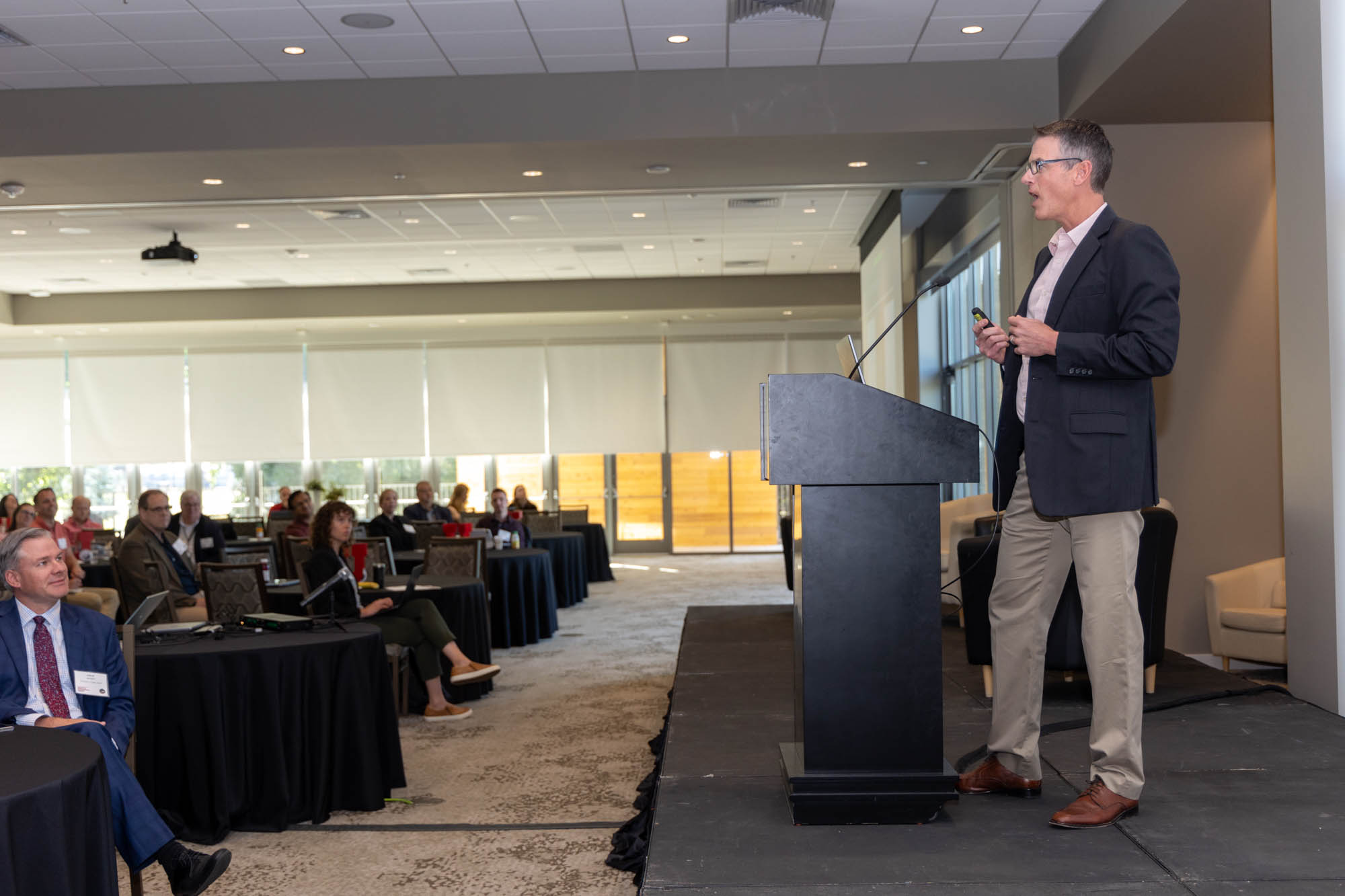
Featured speaker Kevin Williams, founder and principal investor of MadBrains AI, identified AI as the next supercycle, or a cycle of technology that enables entirely new industries and societal constructs. Other recent supercycles include the internet, the cloud, and mobile devices. As businesses rapidly adopt AI, its weaknesses are becoming increasingly apparent and people are feeling frustrated, confused, and left behind. In short, AI has the potential to lead to massive societal disruption, for example, with job displacement and bad data leading to increased biases. Now is the time for stakeholders from various sectors to pursue AI literacy (training and exposure—understanding what AI is, what it’s capable of, and where to use it), clarity (policy, tool identification, and use cases) and iteration (testing and playing to create the best tools). "I think [AI] can solve a lot of the world's biggest problems—even the problems that the tools are creating themselves as far as energy consumption, quantum computing," Williams said. "The grand hope is that rooms like this will start existing all over the country, where stakeholders from all of these different areas are in a room."
Workforce Development Panel
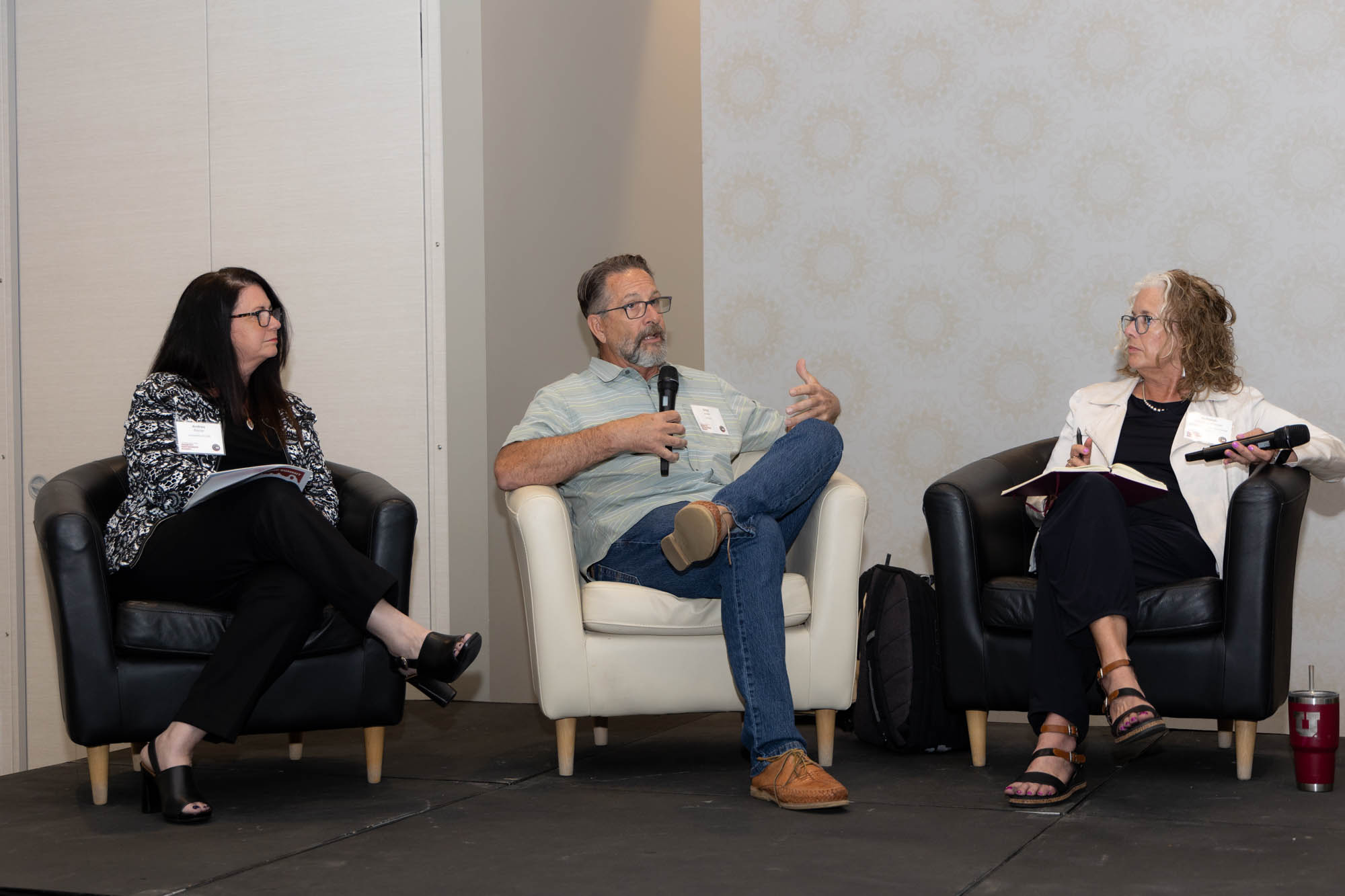
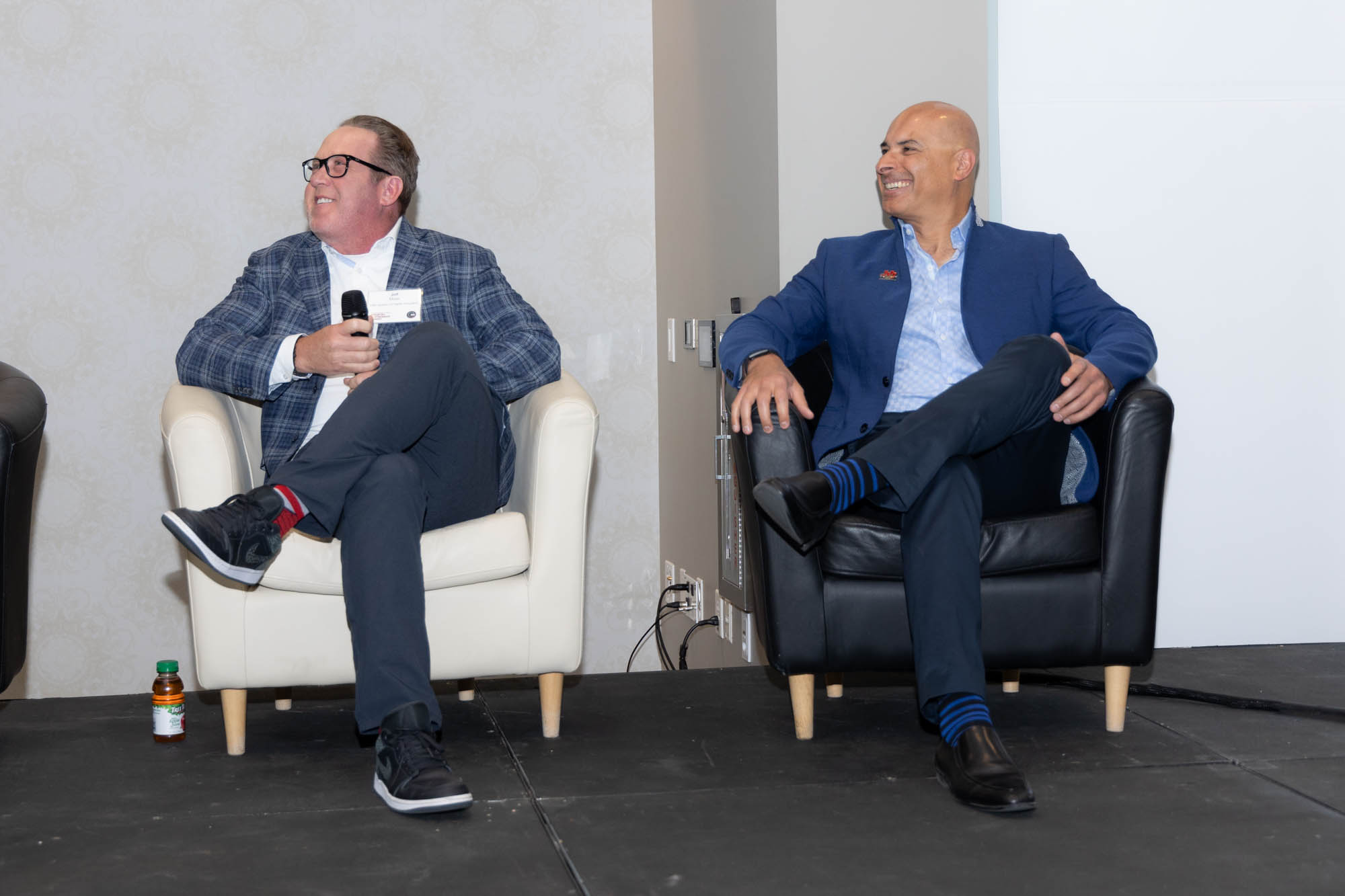
Summary / Action Items
- K-12 and higher education officials need to work with industry partners to codesign AI curricula that are accessible, inclusive, responsible, and relevant to present and future workforce needs.
- Fold AI into existing programs in meaningful ways: develop optional AI credentials that can be tacked onto any field of study, but educational institutions need to ensure those credentials have real-world relevance and are responsible, and then market them to industry partners.
- Give educational institutions the power to move faster and change programs/degrees based on technological advances and workforce needs.
- Upskill educators in AI so they’re qualified to teach these programs.
Infrastructure Panel
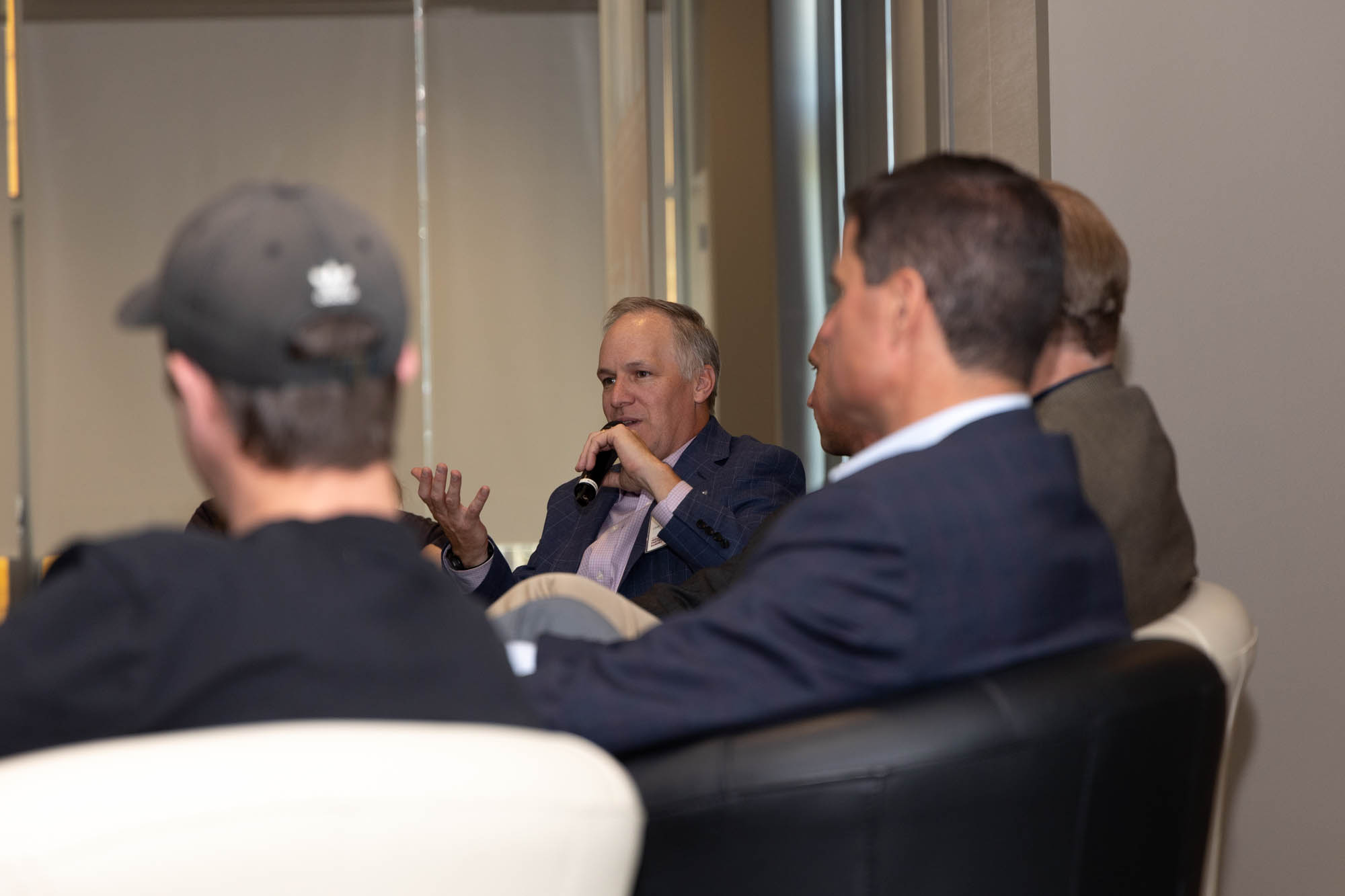
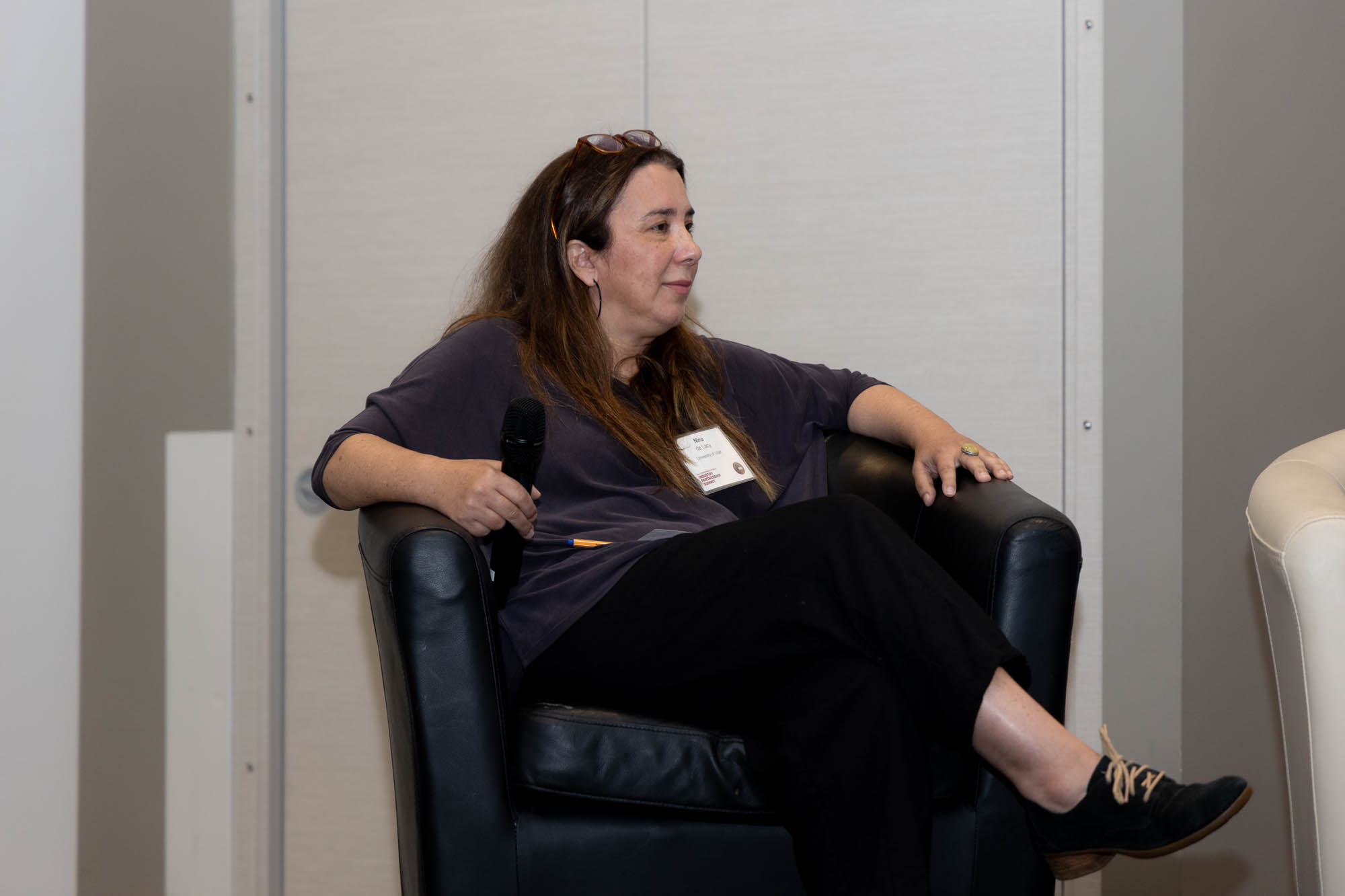
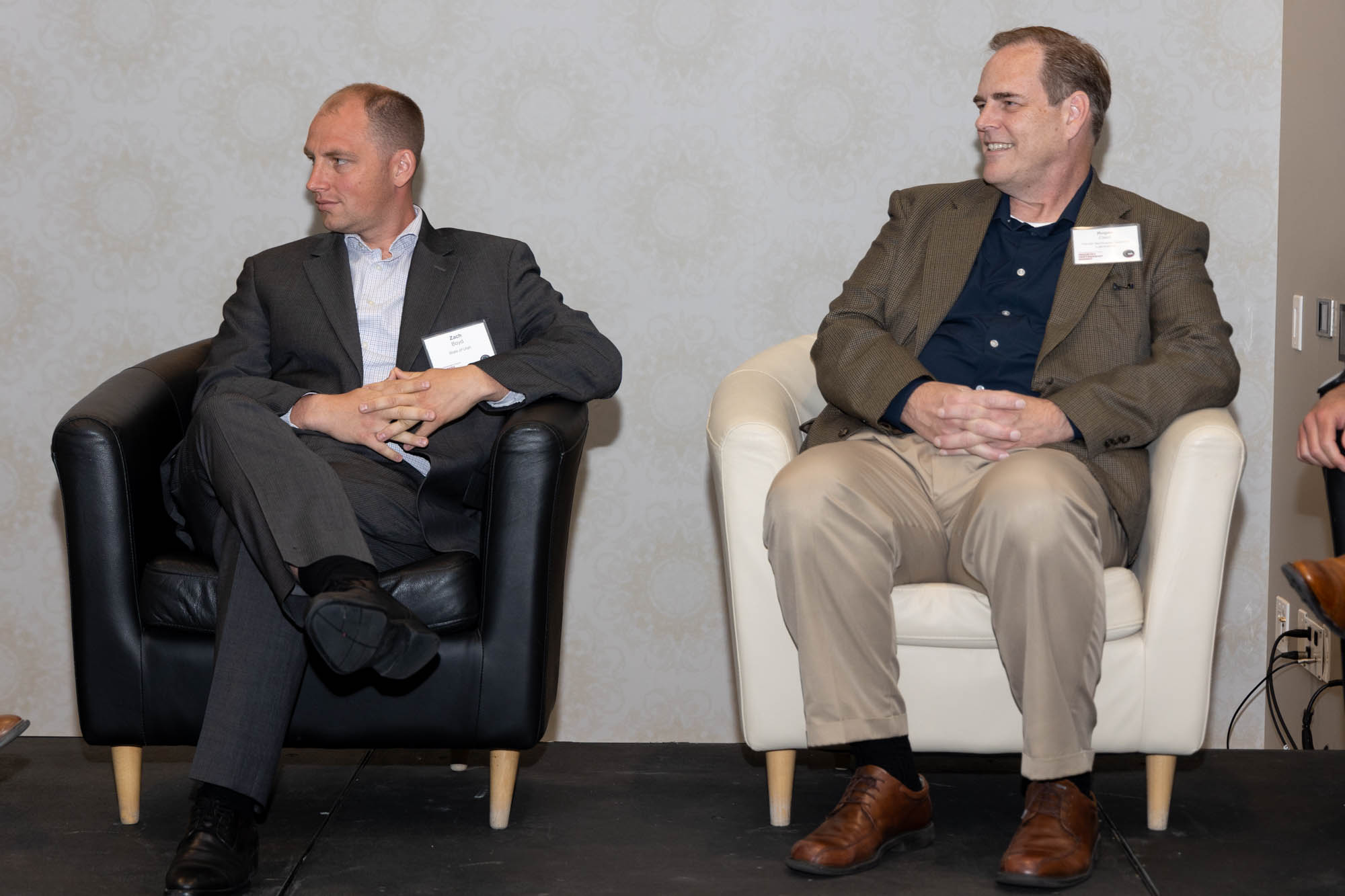
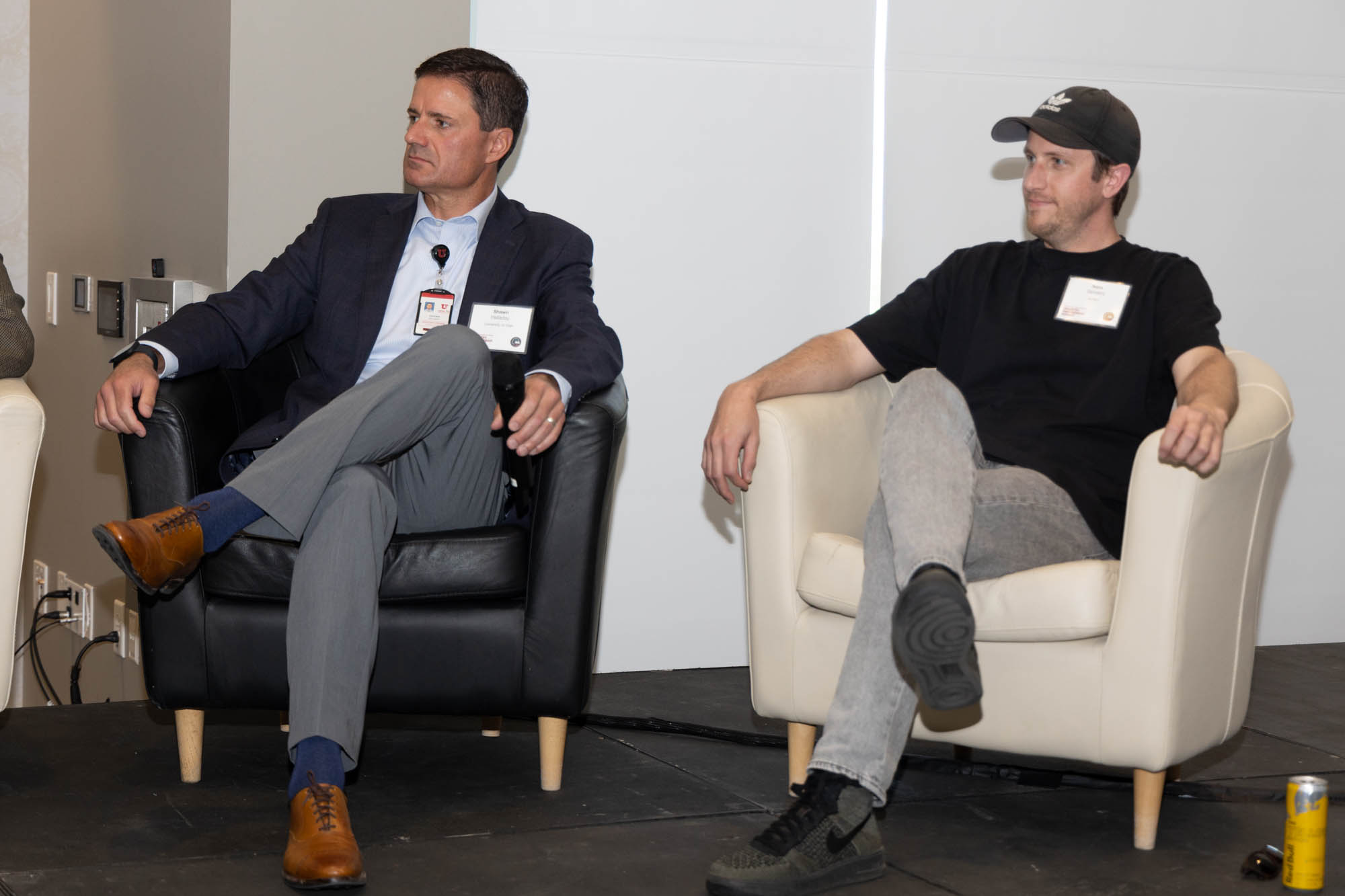
Summary / Action Items
- Develop shared IP between industry and universities.
- Develop protocols to create a common infrastructure around AI: how should models work, and how should different models work together?
- Create a data management and sharing plan to prevent breaches and address data privacy concerns, including giving individuals a say in how their personal data is used in AI and neural networks.
- As a state, consider how we can lead the way in prioritizing open source AI projects to democratize AI.
- Determine where AI computing power will come from and how it can reach the furthest corners of the state: a large-scale computational platform (e.g., a supercomputer or computing cluster) at the U, a partnership with industry, or a combination thereof.
Health Care Panel
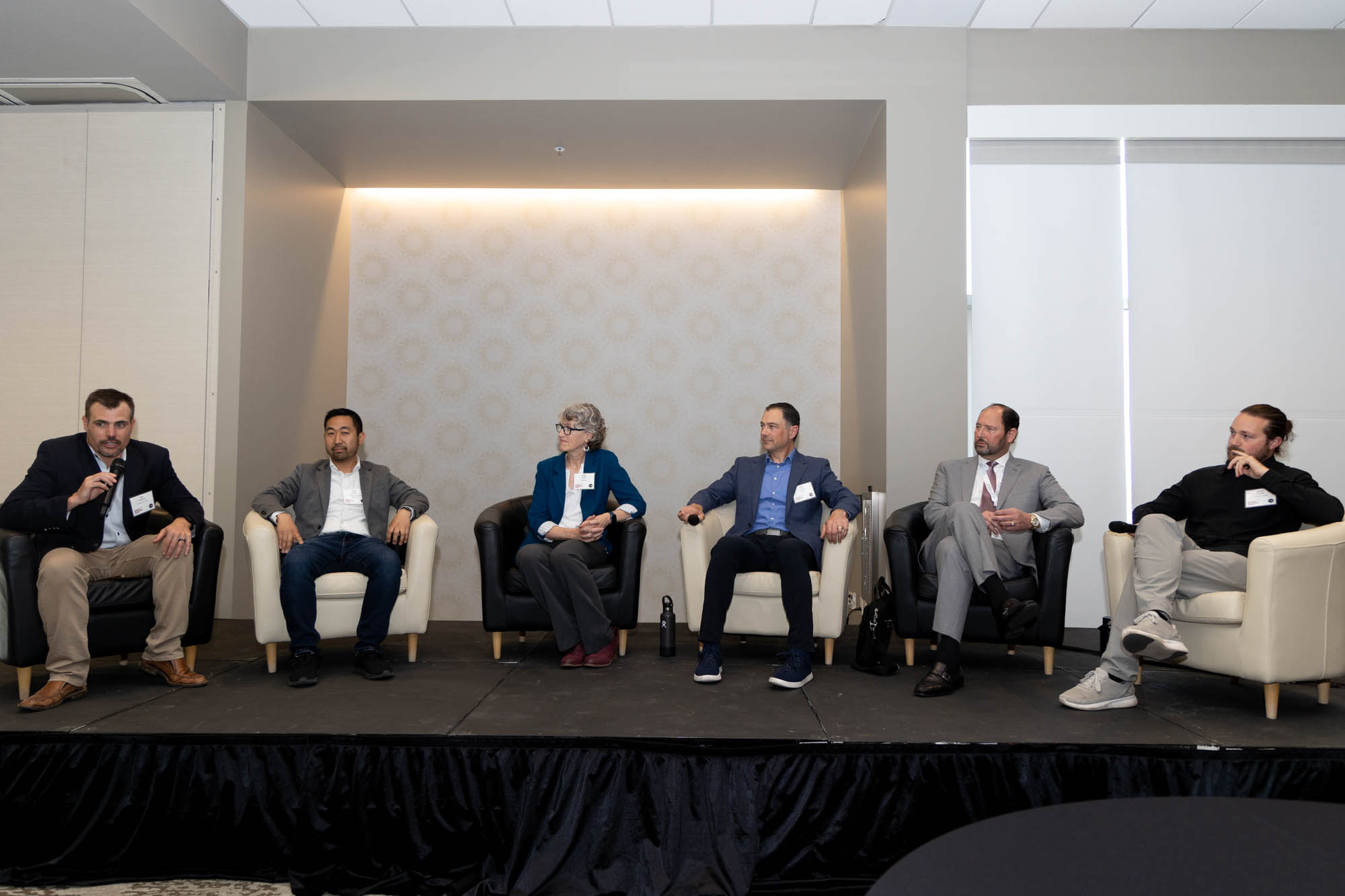
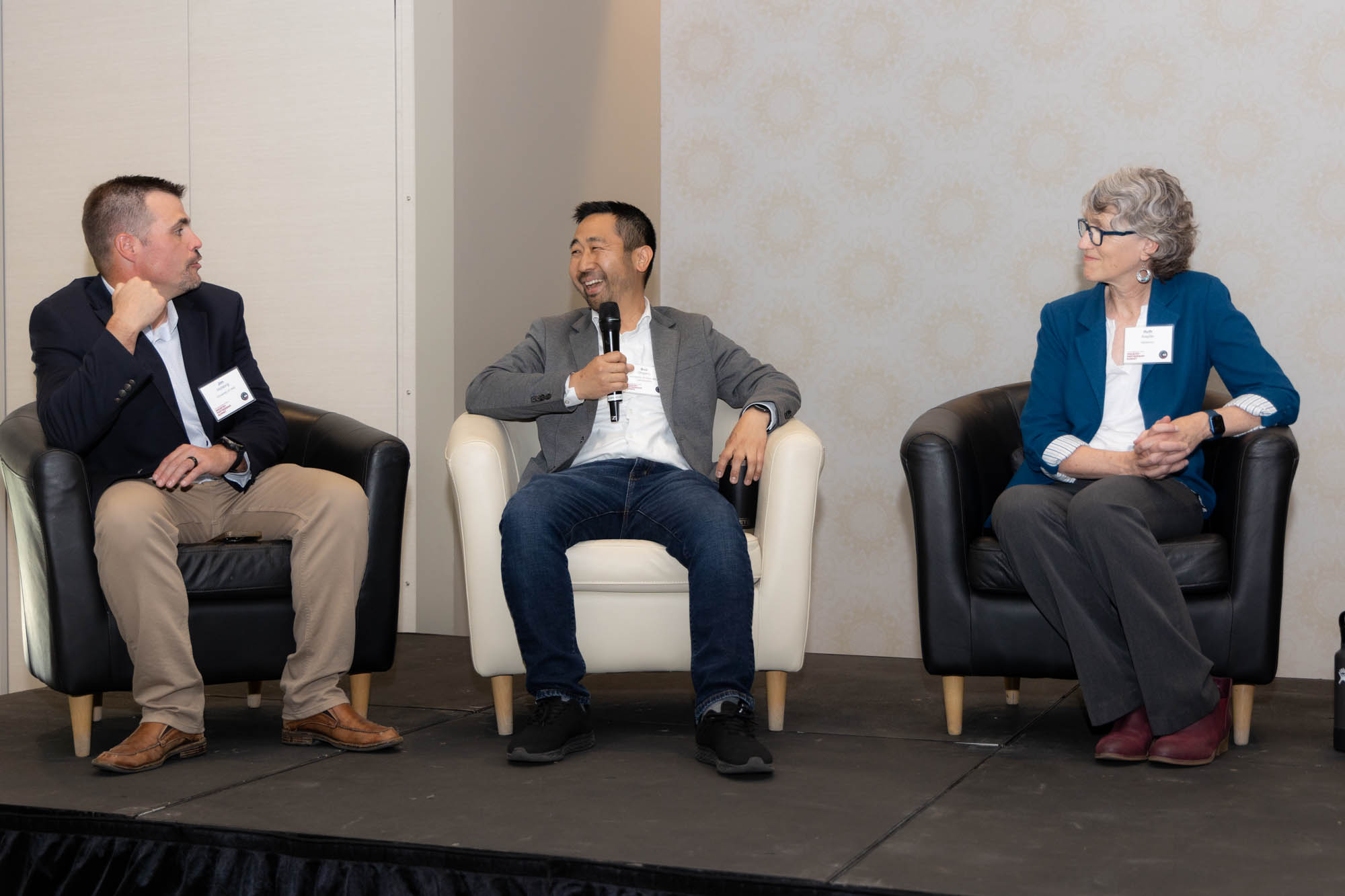
Summary / Action Items
- Use AI not to just generate more information, but the most useful and relevant information—such as noninvasive predictive models—that health care professionals can use to better monitor, diagnose, and treat patients.
- Explore the use of AI (particularly generative AI) to further enhance telehealth and translate medical language to be understood by the community.
- Harness the collaborative culture and deep technical expertise at the U to develop AI projects that will advance health care.
Policy Panel
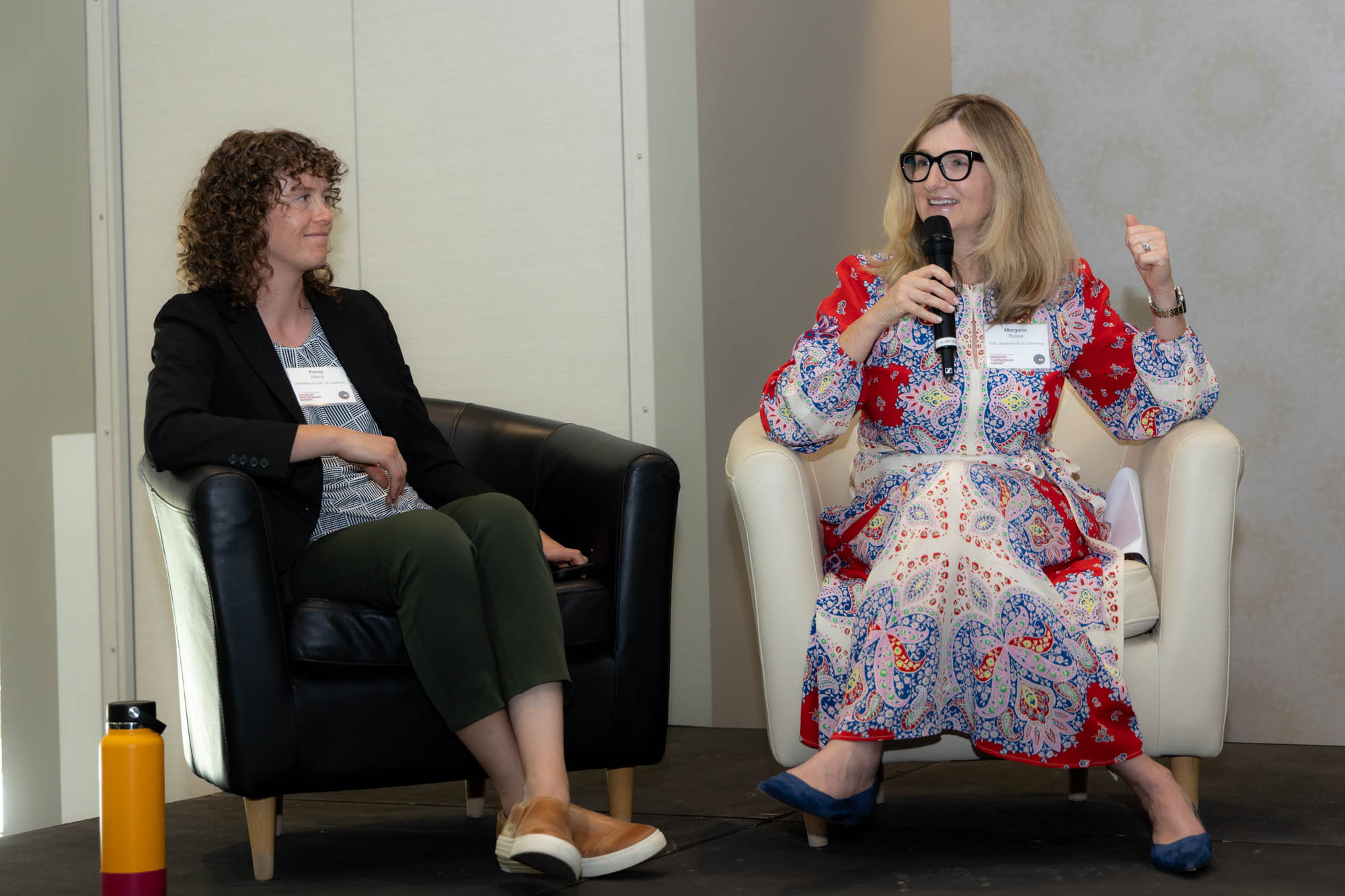
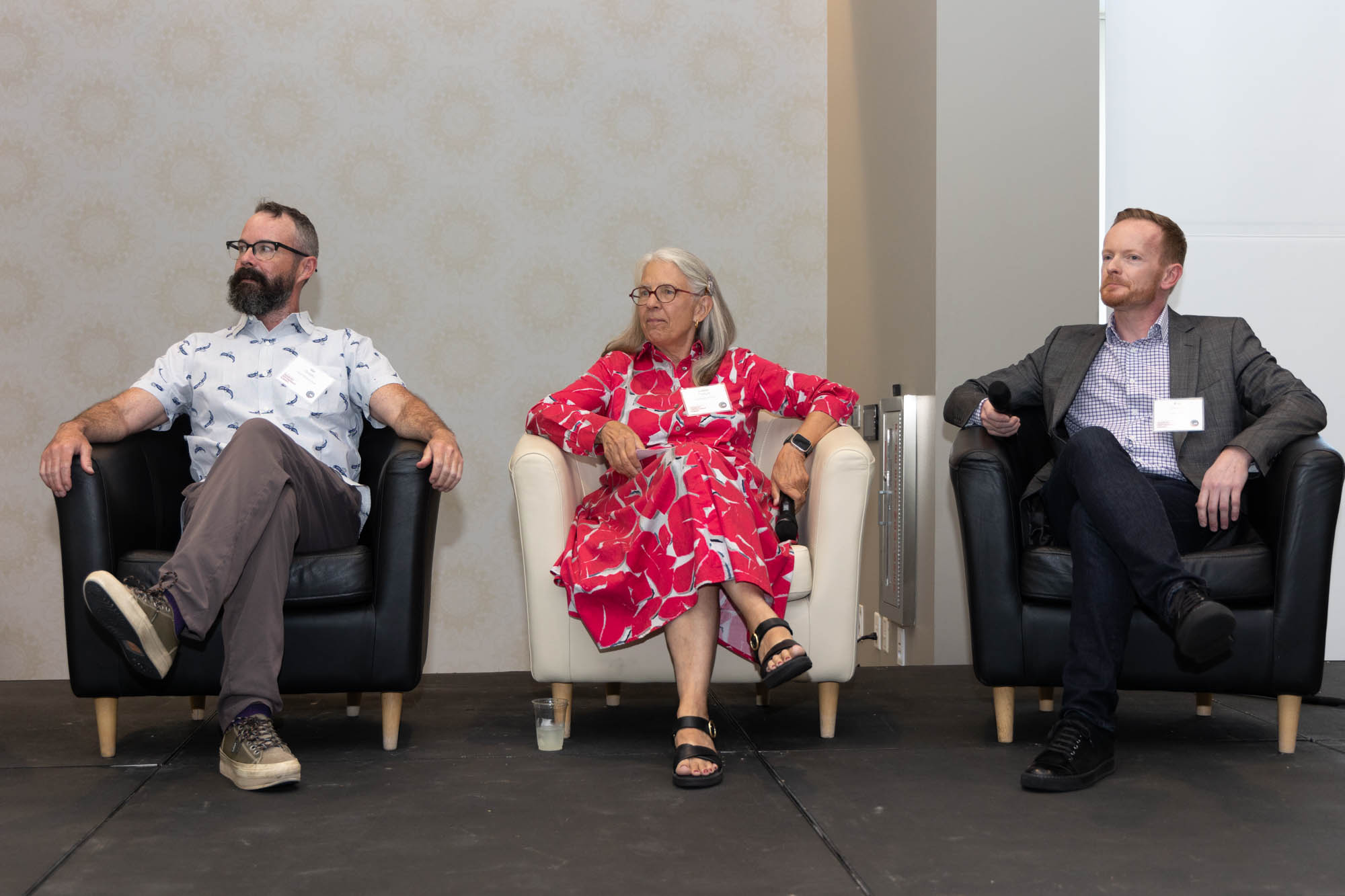
Summary / Action Items
- Academic and industry partners should proactively work with Utah’s Office of AI policy to help the state develop ethical AI regulations that don’t stifle innovation.
- AI can be problematic when it comes to accuracy, misleading people (e.g., deepfakes and election misinformation), and drawing unexpected inferences. Explore how to regulate these issues, if at all, considering they are international and don’t stop at the state border.
- Ensure large language models (or LLMs) have filters and are grounded in well-labeled data to prevent hallucinations.
- Determine how data can be shared for public benefit.
- Promote AI literacy: keep the public informed about AI, how it can be harmful, and why/how organizations should be transparent about its use.
Advancing Technology, Innovation, and Partnerships
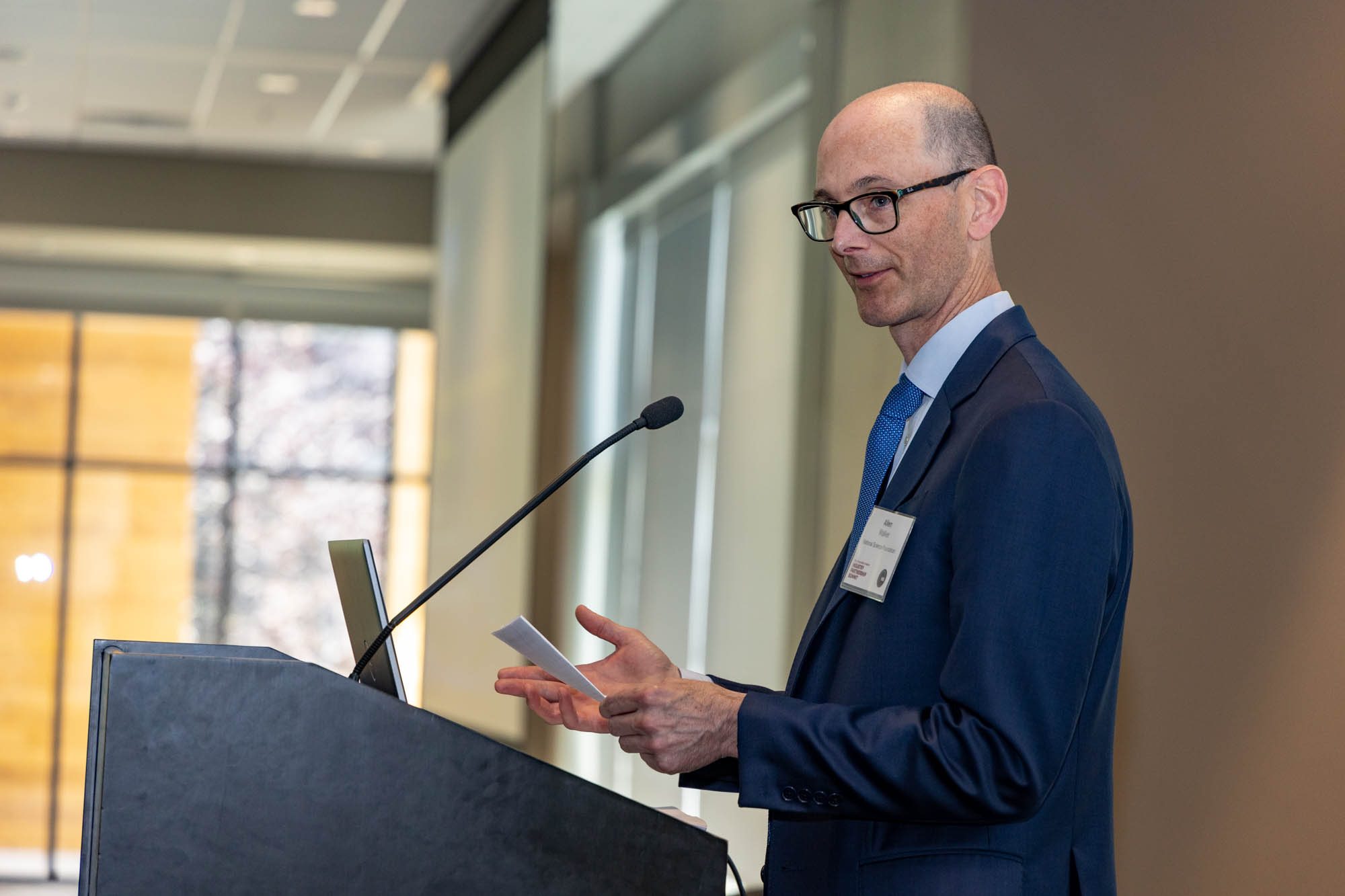
Featured speaker Allen Walker, strategic partnerships officer with the U.S. National Science Foundation (NSF), shared that around 80% of NSF funding is dedicated to academic computer science projects with NSF being the largest funder of AI research at $800 million annually. NSF believes in leveraging shared ideas and partnerships and goes beyond research funding to include support for education, infrastructure, data, and opportunities to pilot use cases. Following recent executive orders aimed at managing risks and maximizing AI's potential, NSF has launched several key programs, including Safe Learning-Enabled Systems, Responsible Design, Development, and Deployment of Technologies (ReDDDoT), AI institutes, and National Artificial Intelligence Research Resource (NAIRR), which highlight NSF’s commitment to advancing AI research and fostering responsible AI development and deployment.
Call to Action
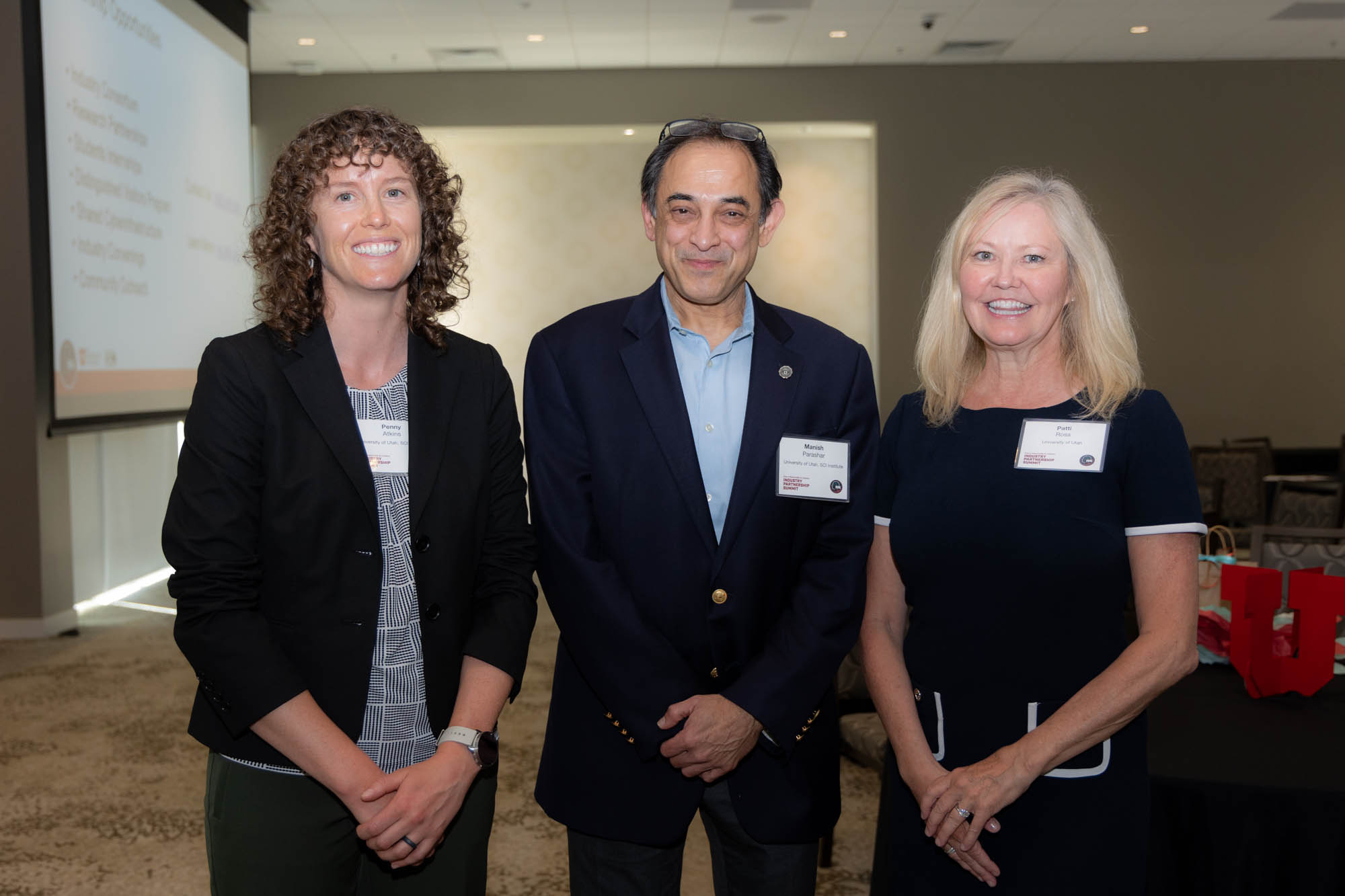
To close out the summit, Manish Parashar said we have a tremendous opportunity to bring Utah to the forefront in AI, but stakeholders in industry, academia, and government must work together in the following ways.
- Establish structures and mechanisms to foster partnerships on responsible AI.
- Convene a task force from the summit to continue gathering input on AI topics such as shared infrastructure, data repositories and datasets, and use cases.
- Create programs to attract and train the best and brightest AI-literate workforce.
- Compute and data are the foundations of moving ahead in AI—creatively and collaboratively build up those foundations.
- Educate the public about AI’s potential and limitations.
